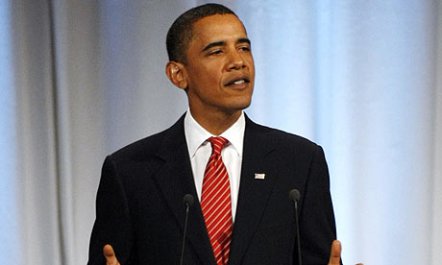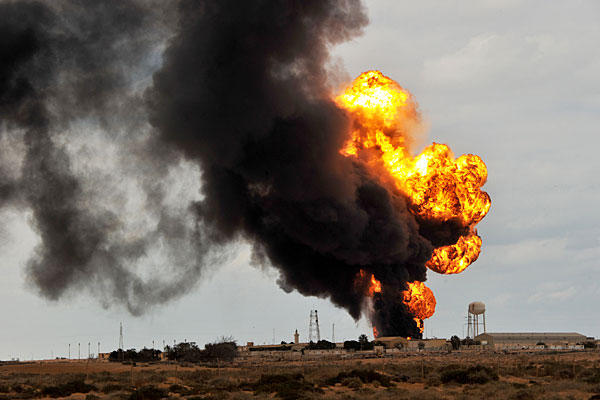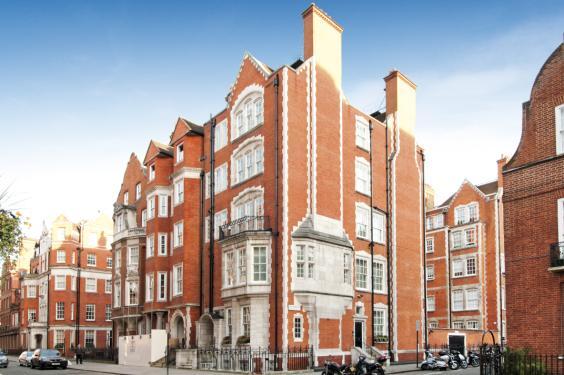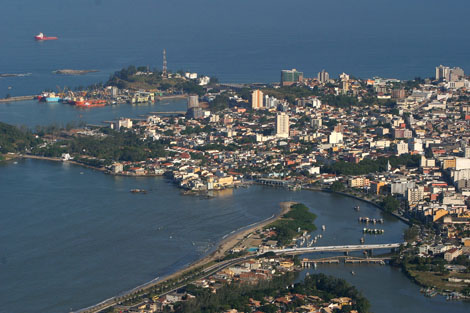380: Wobbling before the fall
05-28-2011

Wobbles: Things are looking increasingly bleak as we expected. The good news for most people is the stock price bubble has not yet popped its had a few wobbles - its more than likely being supported by Fed intervention when a sharp drop takes place. Its at times like these that its best to be well out of the stock market. The market frankly cannot decide which was it will all go are we on course for continued growth, a slow down or another recession?
Recessi on: Well, you may not be surprised to know that we think a recession in western oil importing nations is just around the corner now. Some leading indicators that came out this week:
on: Well, you may not be surprised to know that we think a recession in western oil importing nations is just around the corner now. Some leading indicators that came out this week:
· US oil inventories rose sharply as did refined product indicating a slowdown in economic activity in the USA despite the onset of the summer driving season
· The Japanese economy is now in recession triggered by the earthquake, tsunami, nuclear shut-downs and high energy import costs
· Oil prices have dropped by 10% and stock prices by about 5% as the first signs of an economic slowdown have been detected
Oil Price: Oil has been over $100/bbl for five months - far too long - and this will lead to a recession - it always has, it always does (1973, 1981, 1991, 2008 recessions with similar real terms prices) and we see not reason why this time will be any different - its just logic.
Global Policeman: It's worth considering that the USA's foreign policy shift away from b eing the "global policeman" probably raises fear levels in most countries - and with it - investor's appetite for commodities as a hedge against shortages and oil supply disruptions. With this, one would expect elevated oil price levels even when oil markets are supplied adequately. This "risk premium" might be just one reason why prices remain high - and would not likely drop back anywhere near $37/bbl we saw end 2008. Hence the lack of a "Global Policeman" would naturally lead to higher oil prices, higher inflation, lower growth and reduced disposable income - with larger budget deficits in all oil importing western developed nations.
eing the "global policeman" probably raises fear levels in most countries - and with it - investor's appetite for commodities as a hedge against shortages and oil supply disruptions. With this, one would expect elevated oil price levels even when oil markets are supplied adequately. This "risk premium" might be just one reason why prices remain high - and would not likely drop back anywhere near $37/bbl we saw end 2008. Hence the lack of a "Global Policeman" would naturally lead to higher oil prices, higher inflation, lower growth and reduced disposable income - with larger budget deficits in all oil importing western developed nations.
Key Dangers: But the four real dangers for June 2011 onwards are:
· End of QE2 82% of economists now believe the USA will stop printing money by 30 June (stop buying debt) this will lead to rapidly rising US interest rates and this will cause a further slowdown in the US economy
· There is still no agreement in Congress on the US budget cuts a default could occur in August if no deal is reached on increasing the $14.6 Trillion debt ceiling
· In June, the Greeks are scheduled to make a Euro 12 Billion repayment of their bail-out loan they might default if an agreement on re-structuring the debt cannot be reached. If a default occurs in Greece, contagion will spread and the Euro will crash and/or break-up. Risks are extreme now caused by high oil prices - this adds an additional negative 3-4% to peripheral Eurozone deficits!
· The general northern hemisphere summer slowdown is starting and this will feed through to company results, profi ts warnings and stock market declines
ts warnings and stock market declines
Middle East: Continued problems in the Middle East look set to either stay deteriorated or get worse it seems a huge power struggle has begun between autocratic elite powers and a rising suppressed disillusioned educated mass youth. There is also an intertwined power play between different religious groups and culture groups. The bottom line is, Middle East security is lower now than at any time in the last 15 years and there are just too many countries with too many issues. We wont even start to list them you can read about this in other places. But essentially, this will lead to lower oil production and high baseline oil prices.
Yemen Example: Yemen is worth a specific mention. The country is rapidly degenerating  as a sectarian civil war breaks out there are so many competing factions and such a long history of conflict that it seems highly likely the country will tip into chaos another failed state like Somalia. Saudi Arabia is very worried with Yemen on one side with Iran over the water and Shiite uprisings next door in Bahrain and Shiite control in most of Iraq. Lack of US Leadership in the region is another concern for Saudi behind diplomatic curtains. We think the chance of a regional conflict is higher now than at any time in the last 20 years.
as a sectarian civil war breaks out there are so many competing factions and such a long history of conflict that it seems highly likely the country will tip into chaos another failed state like Somalia. Saudi Arabia is very worried with Yemen on one side with Iran over the water and Shiite uprisings next door in Bahrain and Shiite control in most of Iraq. Lack of US Leadership in the region is another concern for Saudi behind diplomatic curtains. We think the chance of a regional conflict is higher now than at any time in the last 20 years.
Crisis Plundering: The world is plundering through one crisis after the next and the endemic issues of banking risk management have not been sorted out. Hedge fund and investment banks are taking huge risks again using printed money in a last ditched effort to make millions before the super rich bail out and head for the hills. Make no mistake they wont be worrying about all the people that lost money when they sit pretty after being the first instead of the last to bail out. You need to make sure you are not the last one at the party your are not a charity you have a family and dont get caught left high and dry.
Property Investment Safe Hav en: As for property, in the UK and USA both sets of the average population will get poorer over the next ten years slowly as inflation eats into savings and house prices remain depressed. The "most wealthy" will be able to raise money from banks for buy-to-let properties. Most ordinary people will not be able to afford the deposit on a house especially when student loans-debt, credit card debt, higher taxes and high cost of getting married is taken into account. Most Londoners who want to buy a property now expect to be 43 years old before doing so. In 1985, it was common for 23 year olds to buy properties and these properties would double in value every five years.
en: As for property, in the UK and USA both sets of the average population will get poorer over the next ten years slowly as inflation eats into savings and house prices remain depressed. The "most wealthy" will be able to raise money from banks for buy-to-let properties. Most ordinary people will not be able to afford the deposit on a house especially when student loans-debt, credit card debt, higher taxes and high cost of getting married is taken into account. Most Londoners who want to buy a property now expect to be 43 years old before doing so. In 1985, it was common for 23 year olds to buy properties and these properties would double in value every five years.
London Best: We expect the average property prices in England to stay broadly flat for the next few years they will probably go up slightly but not as much as inflation. So if inflation is 5%, expect property prices to rise by say 3%. In real terms, property prices will decline somewhat except for the mid to upper level properties in London or close by London which should rise at slightly above inflation. This is because of gigantic investment inflows from southern Europe, Africa, Middle East and Asia take flight to safety ending up in prime property in central London.
Mayfair: So the closer you get to Mayfair, the higher the % the property prices wi ll rise. The further from London you are, and the more downmarket you are the lower the property price inflation will be ultimately lagging inflation by up to 3-5% per annum for a number of years. This two tier market will should continue particularly if the Tories stay in power. It could become more noticeable if tax breaks for the wealthy are announced in a few years time as is likely if the Tories stay in power. Remember as public sector jobs are lost and private sector expands as a proportion of the overall economy, London will see the biggest benefit and rural and city areas furthest from London will see the worst affects. The only except is NE Scotland (Aberdeen) the oil capital and possibly Edinburgh and Cardiff the other capitals.
ll rise. The further from London you are, and the more downmarket you are the lower the property price inflation will be ultimately lagging inflation by up to 3-5% per annum for a number of years. This two tier market will should continue particularly if the Tories stay in power. It could become more noticeable if tax breaks for the wealthy are announced in a few years time as is likely if the Tories stay in power. Remember as public sector jobs are lost and private sector expands as a proportion of the overall economy, London will see the biggest benefit and rural and city areas furthest from London will see the worst affects. The only except is NE Scotland (Aberdeen) the oil capital and possibly Edinburgh and Cardiff the other capitals.
Peak Oil: The world has been at Peak Oil for the last 6 years now on a bumpy plateau. Anyone that can read charts can see this. Almost everyone has been in denial for the last five years. All those experts being paid huge amounts of money to make forecasts have let the world down. Only last year the EIA was forecasting oil production would rise to 120 million bbl/day by 2030. Yes, 89 million bbls/day (total liquids) is just about it maximum capacity. All the rest of the oil is heavy and refineries dont want it. Not enough light oil for diesel and gasoline.
China and India: Chinese diesel pump prices are half those in the U SA because of subsidies. Indian diesel pump prices are 65% of the US because of subsidies. UK pump prices are double those of US because of gigantic taxes and this despite being almost self sufficient in oil production. As oil prices rise, it affects demand in different countries depending on:
SA because of subsidies. Indian diesel pump prices are 65% of the US because of subsidies. UK pump prices are double those of US because of gigantic taxes and this despite being almost self sufficient in oil production. As oil prices rise, it affects demand in different countries depending on:
· Subsidies
· Alternatives to power, transport, travel etc
· Maturity of the economy
· How desperately the country needs the oil to develop
· How much demand is discretionary (e.g. nice holidays long drives not necessary)
Take the oil from the West: As oil demand drops in the USA and UK, dont expect the same to happen in China or India unless a huge global recession breaks out. To be explicit what we are staying is as China and India develop in the next 10-20 years the oil required will come from USA and Europe a drop in demand. This implies the US and European growth rates will be subdued may be 1% per annum whilst China and India motor along at 6-10% per annum using the oil which will stay >$80/bbl. It might briefly crash below this during a recession but would rapidly rise back again as the Chinese printed more money. So we expect oil prices to fluctuate wildly and every time they rise, this will lead to a slowdown in the global economy particularly in the western oil importing nations Europe and USA. As we have been saying for years the world economy is now constrained by Peak Oil nothing new, this started in 2005, we described this in 2007 and was the key reason we believe that Western developed nations got themselves into all sorts of trouble in 2008 because they could not handle the high oil prices. This time is no different regrettably its just that the dollar has declined in value against most currencies and what used to be $100/bbl is more like $80/bbl now in income for the Middle East, Europe and the Far East.
Brazil Shines Out: As Brazil develops and also develops massive new oil reserves this country will boom. A real estate boom has begun and we see no reason for this to slow for quite some time - years. Brazil probably looks the most attractive place for real estate investing in the world at the moment especially Rio where much of the new oil money will end up either directly or indirectly. Brazil is almost self sufficient in oil production now (when ethanol from sugar cane is taken into account). It should start exporting significant quantities of oil in the next 3-15 years and henceforth as new discoveries are bought on stream. The massive size of this investment may be $100s Billions will create an economic boom in the Rio area, closest to the offshore fields. The big offshore finds are about 240km south of Rio. But the most oil focussed capital of Brazil is Macae, home to Petrobras, some 180km NE of Rio.

Summary: Overall, expect dark clouds to gather over the next six months from early May onwards. It's not likely western economies will come through this summer without a severe battering. With key risks being: 1) a stock market crash (in tandem with an oil price crash), 2) European debt default; 3) downgrade of the US debt; and/or 4) a spotty regional war in the Middle East. Best get into cash as quick as possible - and delay any investments until end of the year earliest after a likely crash. For property investors, only purchase in safe havens. And if you are in cash, be careful who you bank with.
If you have any comments or thoughts on this Special Report, please contact us on enquiries@propertyinvesting.net .

